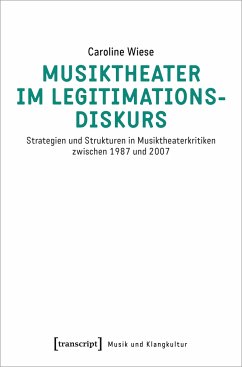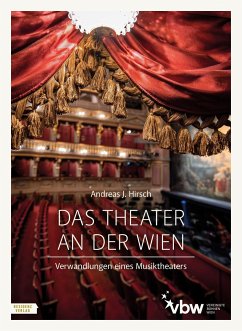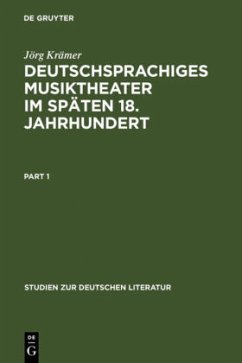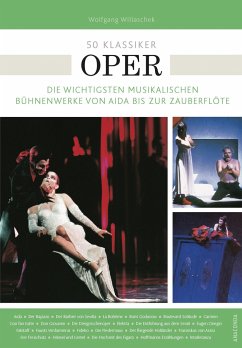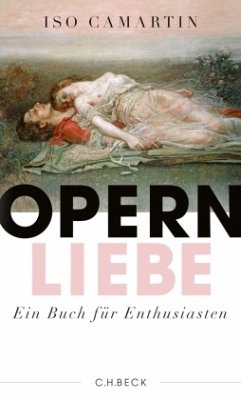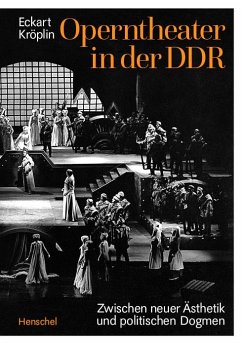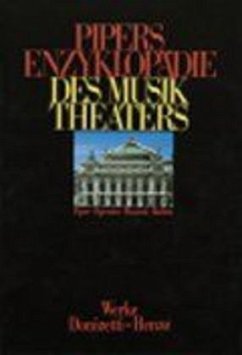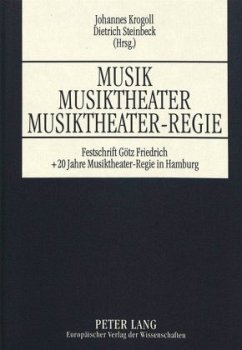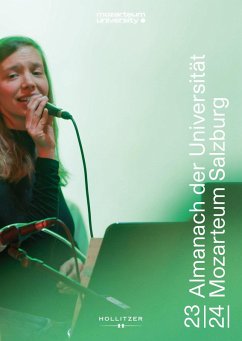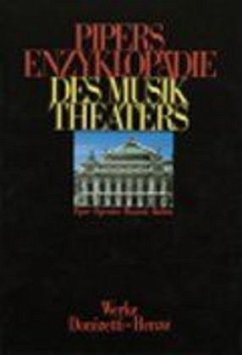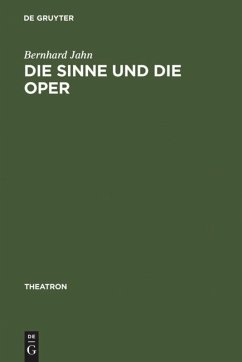
Die Sinne und die Oper
Sinnlichkeit und das Problem ihrer Versprachlichung im Musiktheater des nord- und mitteldeutschen Raumes (1680-1740)

PAYBACK Punkte
0 °P sammeln!
This study is devoted to music drama, which with its formal diversity was the dominant theatrical genre in German-speaking countries between 1680 and 1740. The study focuses on the problems thematized in contemporary discourses on opera in connection with the declared intention of theatre to have a direct effect on the senses. Central to this perspective are the issues posed by the concerted and contradictory impact of the arts and the senses they appealed to, the changes in the functions of the sense of taste and of touch, and the role of the senses in ceremonial contexts.
Die Studie widmet sich dem Musiktheater, welches mit seiner Formenvielfalt das Theater im deutschen Sprachraum zwischen 1680 und 1740 beherrschte. Den Schwerpunkt der Untersuchung bilden dabei die Bühnen in Hamburg, Braunschweig, Weißenfels und Leipzig, die in den europäischen Kontext des Musiktheaters gestellt werden. Zunächst wird am Beispiel früher Rezensionen und musiktheoretischer Schriften sowie der pietistischen und der rationalistischen Opernkritik die Art des Sprechens über das Musiktheater dargestellt. In den zeitgenössischen Diskursen ergaben sich im Zusammenhang mit der auf die Sinne ausgerichteten Wirkungsabsicht des Musiktheaters Probleme, die im Mittelpunkt der Untersuchung stehen. Das Zusammen- und Gegeneinanderwirken der Künste und der durch sie angesprochenen Sinne wird vor allem an Prologen untersucht, die den Wettstreit der Künste thematisieren, sowie an »Antiochus und Stratonica«-Opern, die die Differenzen verbaler und nonverbaler Zeichensysteme einsetzen. Der Funktionswandel des Geschmackssinns wird anhand der Essensthematik verfolgt, die Wandlungen des Tastsinnes an den verschiedenen Liebeskonzeptionen in den Opern. Die politische Dimension von Sinnlichkeit zeigt sich in der Verbindung zwischen Oper und Zeremoniell, wobei das Musiktheater, wie am Beispiel Weißenfels' erkennbar, als Zeremoniellsimulator fungiert.




